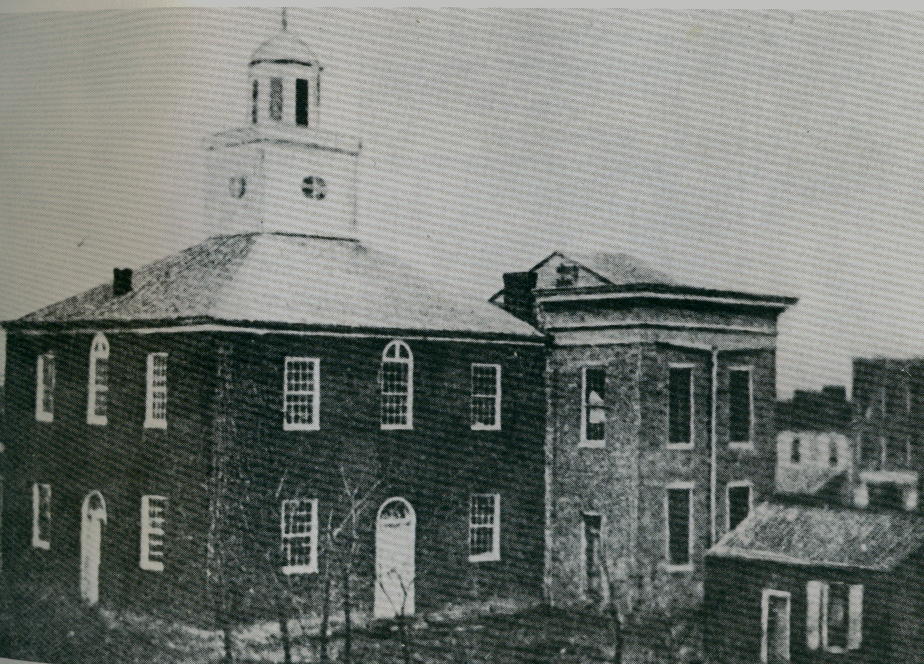CCLHP: Highland vs. Crow
All court documents were captured, via Digital Camera, from Highland v. Crow case files from the Coles County Circuit Court Case Files.
Illinois Regional Archives Depository, Highland v. Crow
Highland v. Crow involves a draft substitute during the Civil War. Debt is one of the most common issues addressed by the different cases within the Coles County legal history database. In 1865, the clerk of Coles County filed an interesting case involving debt. William Highland (plaintiff) sued Philip A. Crow (defendant) because he claimed that Crow was in unlawful possession of a promissory note written by John McCoy. Crow hired Highland in October 1864 to serve in the U.S. Army for one year in place of Jackson Harsh. At the time, Crow gave William Highland $550 substitute for Jackson Harsh. Highland them loaned McCoy $400 for "safe keeping" until after he returned from the war. After agreeing to serve for Harsh, Highland was drafted by his home State of Ohio. Thus, he was unable to substitute for Harsh, who was a citizen of Illinois, and Crow had to hire another substitute.
Both Crow and Highland claim that the promissory note held by John McCoy had different purposes. William Highland claims that the note was given to Phillip Crow without his authorization. Therefore, the note was to be repaid to him because he loaned the money to McCoy. Highland claimed that Crow was attempting to get the money he originally paid Highland to serve in the military. In turn, Crow asserted that a deal had been struck between himself and Highland about the possibility of him being drafted by his home state of Ohio. Crow claims that the money loaned by William Highland to John McCoy was to ensure that if he was drafted by his home state McCoy would serve in his place for Jackson Harsh. Crow went on to say that Highland owed him a sum of one hundred dollars. This was due to the fact that McCoy was paid four hundred to serve as a substitute for Jackson Harsh in the event that Highland could not fulfill his duties. In turn, the one hundred and fifty dollars that was over paid to Highland became Crow's grievance during the trial.
In the end, the case boiled down to the particulars. Both Highland and Crow had strong cases, which were grounded in speculation about the agreement between the parties. Neither John McCoy nor Jackson Harsh gave a written testimony during the trial. This makes it difficult to speculate as to whose story was right. William Highland had the strongest case, because he had five witnesses that vouched for his version of the story. Phillip Crow's only testimony was that of his own. When the trial concluded though, it was deemed that Phillip Crow was not guilty and as a result, he was not forced to pay the four hundred and fifty dollars back to William Highland.
This case has larger implications about the changes brought about during the Civil War. This case accomplishes this by revealing legal problems and social issues, as the United States instituted conscription for the first time during the Civil War. Highland v. Crow gives historians and students a good understanding of some of the challenges brought on by the radical changes legal and social areas took on during this era.
 The courthouse as pictured in Adin Baber's drawing of the affair.
The courthouse as pictured in Adin Baber's drawing of the affair.
Courthouse Photo, obtained from Shick, Nancy Easter., Douglas K. Meyer eds. Pictorial Landscape History of Charleston, Illinois. (Charleston, IL: Rardin Graphics: 1985), 25-26.
Draft Case
-
Highland v. Crow, File Date March 20th 1865. Booth Library Archives, Illinois Regional Archives Depository, Box 2/C/1. and Coles County Legal History Project, Case, no. 634.
-
Case number 634 offers insight into the legal history of Coles County during the Civil War. Highland sued Crow because he claimed that Crow was in unlawful possession of a promissory note written by John McCoy to him. Despite the fact that Highland might have owed Crow money he still sued Crow for withholding the promissory note written by McCoy. This case raises important questions of possible legal problems faced by the United States as it instituted conscription for the first time.








